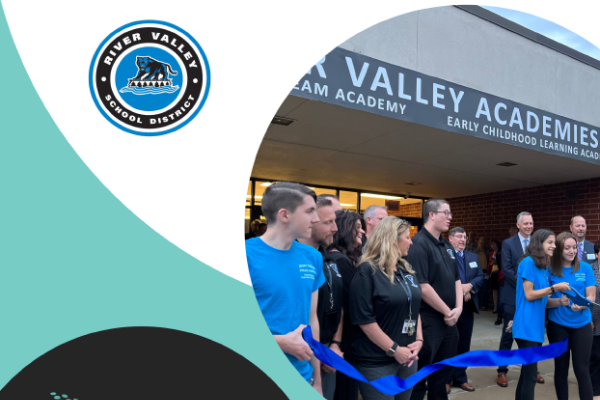Youth Apprenticeships Toolkit
November 01, 2020
Apprenticeships are an underutilized educational and workforce strategy with proven value that, more and more, has been successfully implemented by schools around the country.
Currently, middle and high schools focus on preparing students to attend colleges or universities. And yet, for many students, this is not the only path—or even the best path—that they can take. A cultural shift is needed for educators, counselors, parents and students to consider successful models of apprenticeships as a viable and exciting educational option. The goal of this toolkit is encourage the creation of school and business partnerships as another viable and expansive pathway to success in career and work. This kit provides resources for secondary and community college administrators to advocate for and build apprenticeship programs of their own.
EXPANDED PATHWAYS will help you get started.
$300,000
Additional average career earnings of workers who complete apprenticeship programs
97%
Businesses with apprenticeship programs that would recommend apprenticeship to others
252,000
Number of individuals that entered the apprenticeship system in 2019
94%
Apprentices who retain employment after their program ends
1,000
Number of occupations nationwide with apprenticeship opportunities
81,000
Graduates from the apprenticeship system in 2019
705,000+
New apprentices since January 1, 2017
128%
Growth in the number of apprenticeships since 2009
25,000
Active registered apprenticeship programs across the nation
Video: Launch a Youth Apprenticeship Program
Building Your Program
Talking points for school leaders to build partnerships and consensus, recommendations for beginning a youth apprenticeship program and ideas for successful outreach strategies.
District Action Planning Guide
10 questions to help you and your team assess where you are and plan for apprenticeship initiation, growth, or expansion.
Denver Public Schools
Superintendent: Susana Cordova
District Enrollment: 93,815
Cherry Creek Innovation Campus (CCIC)
Superintendent: Scott Siegfried
District Enrollment: 55,000
Charlotte-Mecklenburg School District
Superintendent: Ernest Winston (current);
Former Superintendent: Clayton Wilcox (interviewed)
District Enrollment: 146,000
Kentucky Office of Apprenticeships and Russell County Schools
Superintendent: Michael Ford
District Enrollment: 3,130
With questions contact AASA at webmaster@aasa.org
Youth apprenticeship has the opportunity to absolutely transform career-connected learning in Colorado. We started out with six occupations. Now we have 19 different apprentice-able occupations in the CareerWise Suite. In Switzerland, our model is based on the Swiss apprenticeship model, which has 230. So, really, the skill is the limit in terms of opportunities students can train for in their youth apprenticeship space.Bernard McCune
Our Highline promise is to know every student by name, strength and need so they graduate prepared for the future they choose. And if we are going to deliver on that promise with honesty, integrity and authenticity then we have to provide expanded pathways.Susan Enfield
Advertisement
Advertisement
Advertisement
Advertisement




